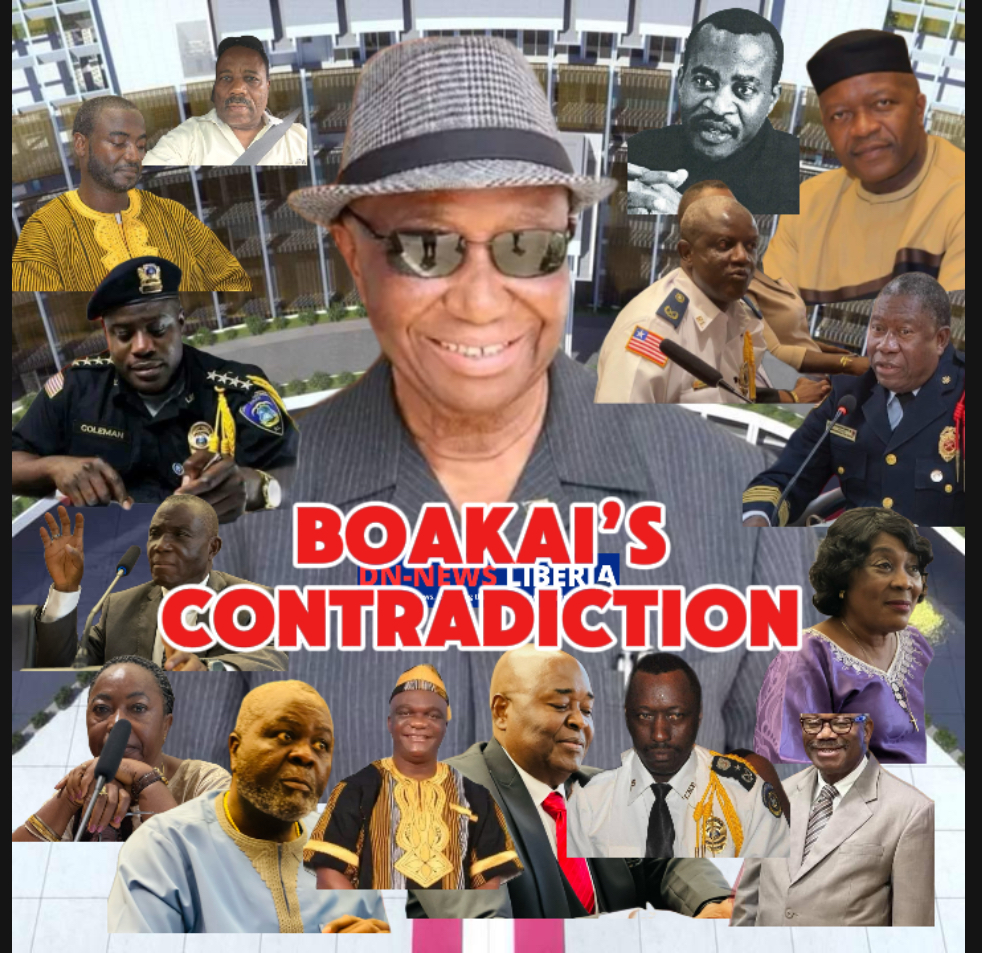President Joseph Nyumah Boakai’s appointments of Ellen’s “Squanderers” appear to contradict his own critique of the Unity Party government under President Ellen Johnson Sirleaf. While serving as Vice President during Sirleaf’s administration, Boakai famously stated that the government had “squandered opportunities,” a bold admission that reflected frustration with its failures. Now, as President, his reappointment of key officials from that same administration raises serious questions about consistency, leadership, and Liberia’s future.
Boakai’s claim that the Unity Party government squandered opportunities was not only a self-critique but also a broader indictment of the administration’s governance and policy execution. Implicit in this statement was an acknowledgment of mismanagement, corruption, and inefficiencies that failed to translate post-war goodwill into tangible progress for ordinary Liberians.
If the government indeed squandered opportunities, then it follows that the people entrusted with key roles in that administration were, at the very least, complicit in its failures. By reappointing individuals who held senior positions during Sirleaf’s tenure, Boakai undermines his own critique, signaling either a lack of confidence in his earlier judgment or a troubling absence of fresh leadership ideas.
The recent appointment of Lewis Brown as Liberia’s Permanent Representative to the United Nations is a prime example. Brown held this same position under Sirleaf, after serving as Information Minister. While his qualifications and experience may be commendable, the optics of his reappointment suggest a return to the very establishment that Boakai once accused of wasting Liberia’s potential.
Similarly, the reappointment of two former Finance Ministers, Boimah Kamara and Augustine Ngafuan, further cements this pattern. Kamara Served as Ellen’s Final Finance Minister and Joseph Boakai first Finance Minister, while Ngafuan also served in senior roles during Ellen’s era and now serves as Boakai Finance Minister. Gregory Coleman, Police Inspector General is another Classic Example similar to Boimah Kamara as stated above. If these individuals were part of a system that “squandered opportunities,” as Boakai claimed, what justifies their return under his administration?
Boakai’s decision to surround himself with former Sirleaf officials raises questions about his leadership vision. Does this signal an endorsement of their previous performance, despite his earlier critique? Or does it reflect a lack of fresh, competent alternatives?
While experience is valuable, Liberia’s challenges require innovative solutions and bold leadership. Recycling the same figures from a criticized administration risks perpetuating the very stagnation Boakai once decried. Moreover, it sends a mixed message to the Liberian people, who are yearning for accountability and a break from the status quo.
Boakai’s actions suggest either a selective memory or political expediency. By reappointing former officials, he risks validating the failures of the Sirleaf era, weakening his credibility as a reformist leader. If Ellen’s government squandered opportunities, then her appointees must bear responsibility. Boakai’s inability to chart a clear departure from this legacy signals either a lack of conviction or a preference for political alliances over transformative leadership.
Liberia is at a crossroads. The country needs leaders who are willing to embrace accountability, inspire innovation, and prioritize the needs of the people over political alliances. President Boakai must reconcile his past criticisms with his current actions. Rebuilding Liberia requires not just experienced hands but also new voices and fresh perspectives capable of addressing the entrenched issues of corruption, inequality, and underdevelopment.
As Boakai’s administration progresses, it remains to be seen whether these reappointments will yield better results or perpetuate the very failures he once criticized. For now, however, his actions reflect a troubling contradiction that risks undermining his presidency’s promise of change and progress. The Liberian people deserve answers, and more importantly, they deserve leadership that is consistent, visionary, and genuinely committed to moving the nation forward.


